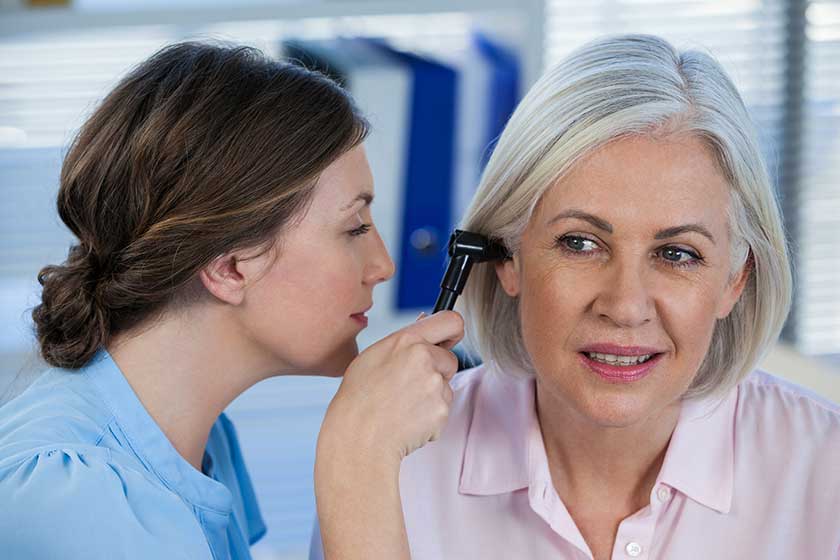Menopause marks a significant transition in a woman’s life, bringing about various changes in the body, both physical changes and emotional ones. While most focus is on hormonal shifts and their effects, one aspect that often gets overlooked is ear health. Yes, you read that right! Menopause can impact your hearing too. In this article, we’ll delve into the intricacies of ear health after menopause and provide you with essential tips to ensure optimal hearing during this phase of life.
Understand the Impact of Hormonal Changes
As estrogen levels decline during menopause, it can affect various parts of the body, including the auditory system. Estrogen plays a role in maintaining the health of the delicate tissues in the ear. Understanding this impact is crucial in addressing any changes in hearing that may occur.
Prioritize Regular Hearing Check-ups
Regular hearing check-ups become even more critical during menopause. Schedule appointments with an audiologist to monitor your hearing health. Early detection of any issues can lead to better management and outcomes.
Stay Active and Maintain a Healthy Lifestyle
Engaging in regular physical activity and following a balanced diet not only benefits overall health but also contributes to better ear health. Exercise improves blood circulation, including to the ears, which can help in preserving hearing function.
Protect Your Ears from Loud Noise
Exposure to loud noises can accelerate hearing loss, especially as we age. Take precautions to protect your ears, such as using earplugs or earmuffs in noisy environments. Limiting exposure to loud music and machinery can also help preserve your hearing.
Manage Stress Effectively
Menopause can bring about increased stress levels, which can negatively impact various aspects of health, including hearing. Practice stress management techniques such as meditation, deep breathing exercises, or even taking part in activities to improve mental health and keep stress levels in check.
Avoid Smoking and Limit Alcohol Consumption
Smoking and excessive alcohol consumption can have detrimental effects on hearing. Quitting smoking and moderating alcohol intake can significantly reduce the risk of hearing loss and other ear-related issues.
Be Mindful of Medications
Some medications, including certain antibiotics and pain relievers, can potentially harm the auditory system. Consult your healthcare provider about the side effects of any medications you’re taking and discuss alternative options if necessary.
Incorporate Hearing-friendly Foods into Your Diet
Certain nutrients like omega-3 fatty acids, vitamins C and E, and magnesium are beneficial for maintaining good hearing health. Include foods rich in these nutrients such as fish, nuts, seeds, leafy greens, and citrus fruits in your diet to support your ears.
Practice Good Ear Hygiene
Keep your ears clean and dry to prevent infections and earwax buildup, which can affect hearing. Use gentle cleaning methods like wiping the outer ear with a damp cloth and avoid inserting cotton swabs or other objects into the ear canal, as this can push wax deeper and potentially damage the eardrum.
Stay Educated and Aware
Stay informed about the latest advancements in hearing health and menopause-related issues. Attend seminars, read reputable sources, and stay in touch with healthcare professionals specializing in audiology and menopause. Knowledge empowers you to make informed decisions about your ear health and overall well-being.
Promoting Ear Health Beyond Menopause
Menopause brings about various changes in the body, including ear health. Understanding the impact of hormonal changes is essential. By prioritizing regular check-ups, adopting a healthy lifestyle, and taking preventive measures, you can maintain optimal hearing health during and after menopause. Your ears deserve as much care and attention as the rest of your body. In our retirement community, we support our residents by facilitating access to healthcare professionals who specialize in this area. We help integrate these important practices into daily life to safeguard your hearing for the future. To discover how we can help you maintain your hearing health, reach out to us today.







